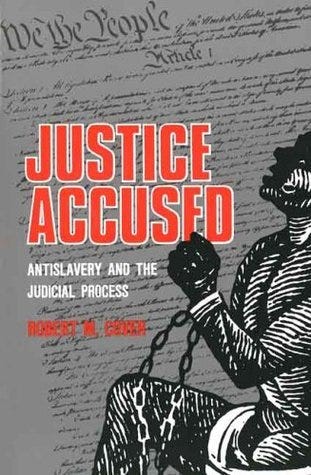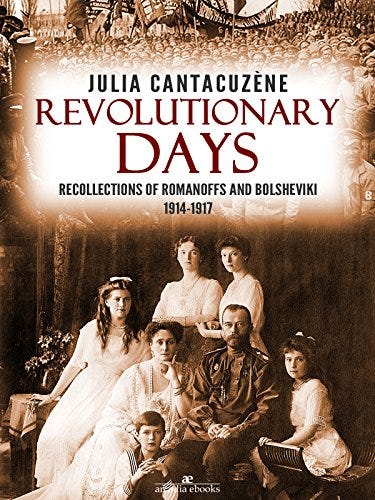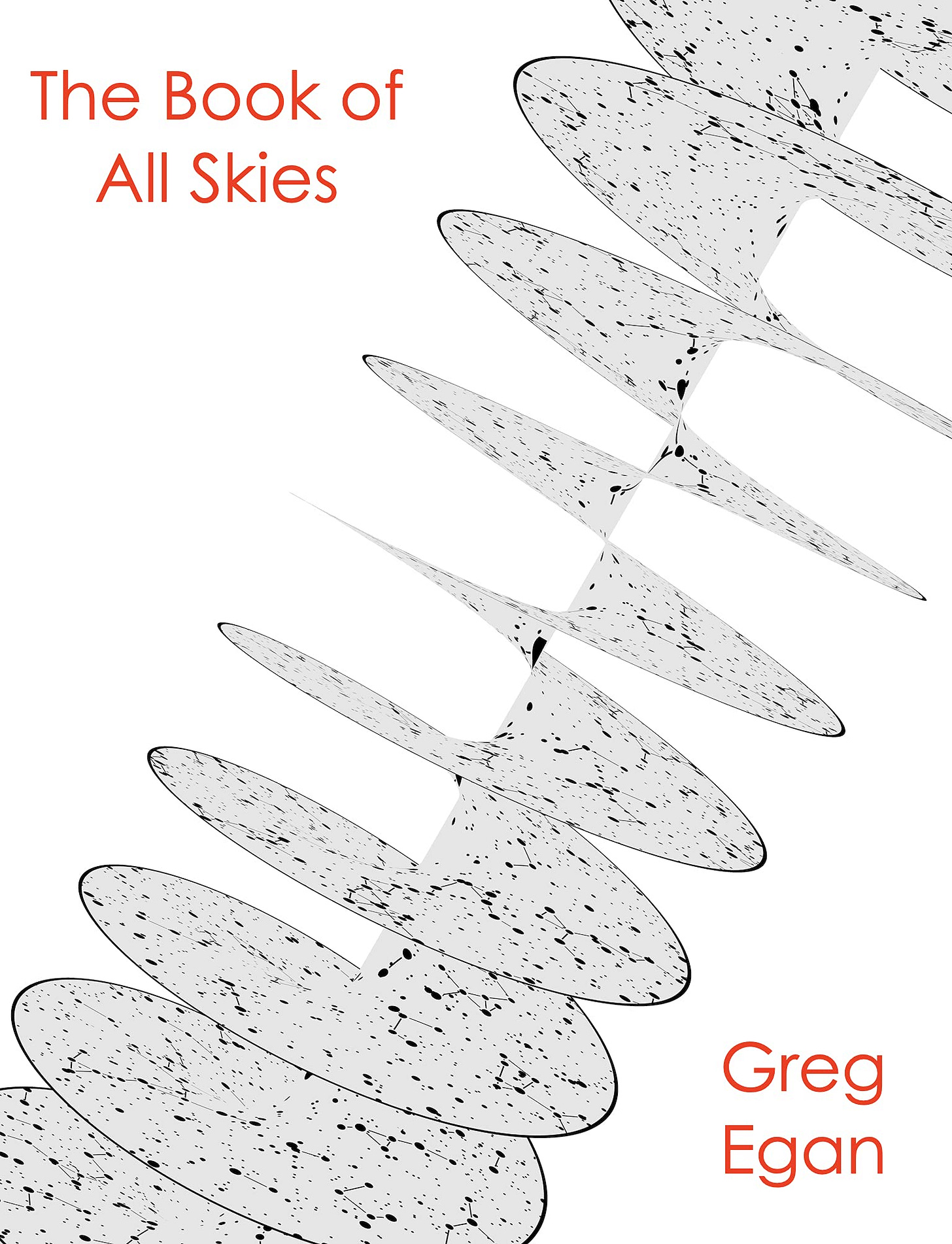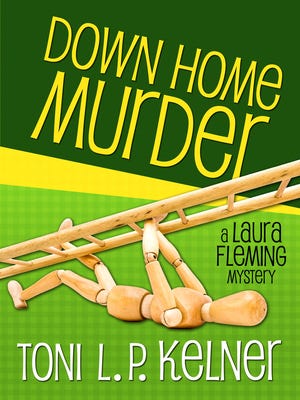Short Reviews for July 2024
Justice Accused, Revolutionary Days, Book of All Skies, Down Home Murder
Justice Accused: Antislavery and the Judicial Process, by Robert Cover (322 pp; 1975)
Who should read this? People who're interested in the American abolitionist movement, or in the ethics of law.
In antebellum America, how did abolitionists approach a legal system that was to some extent founded on principles of liberty, but protected slavery? How did antislavery judges reconcile their abhorrance of slavery with their duty to the law?
Cover intriguingly explores their various solutions. Unfortunately, he can't do more than summarize their adroit arguments (sometimes specious but sometimes very cogent), but he digs into different motivations and approaches. Some abolitionists made their peace with doing what they could within the system; others refused to cooperate at all; others stretched logic to claim the Constitution was actually firmly antislavery; still others - including many judges - used every excuse to read liberty into the law, on the basis that the country was founded on liberty.
There were notable defeats; the Fugitive Slave Acts got repeatedly upheld and federal power extended. The Civil War could almost have broken out over this issue - by 1859, the Governor of Ohio was ready to send the state militia to free a federal prisoner arrested for resisting the Fugitive Slave Acts. But there were also notable successes, where many individual slaves were freed.
Revolutionary Days, by Julia Countess Speransky (nee Grant) (442 pp; 1919)
Who should read this? People who want to read a contemporary perspective on the Bolshevik Revolution.
In 1899, Julia Grant, granddaughter of President U. S. Grant, married Prince Mikhail Cantacuzène of Russia. (The title of "Prince" was honorary; he wasn't related to the royal family.) After some years in Russia which she describes as happy, the war - and then revolution - erupted around them. Julia's autobiography serves essentially as a diary here amid the swiftly-changing hopes, shortages, difficulties, and fears of the revolution and Provisional Government and Bolsheviks. A few weeks after the Bolshevik coup, they escaped via train to Sweden - thanks to Bolshevik soldiers formerly in her husband's regiment who remembered him fondly.
My great shock here is at what reads to me as Julia's naivete and shallowness. She seems to view Russian aristocratic rule as fundamentally benevolent, and the moderate-liberal factions in the Tsarist government as modernizing and democratizing as quickly as practicable. Judging by the loyalty of her husband's former soldiers to him, it's possible that her husband specifically might have been benevolent - but even if so, she appears to generalize over-hastily here from him to the entire aristocracy. Her venom toward allegedly pro-German factions in the government shows me that she is capable of negative feelings, but she only shows them here.
Or at least, that's what she wrote. She wrote her autobiography in America between 1919-1922, and for all I know she could've painted the Tsarist aristocracy as benevolent just to rouse American sympathies for the anti-Bolshevik cause.
This isn't primarily a history of the Revolution, but it's a fascinating view of it.
The Book of All Skies, by Greg Egan (274 pp; 2021)
Who should read this? People who really want to read the complete works of Greg Egan. People who’re interested in his alternate physics should instead read his webpage expanding on this book.
Egan has an interesting scientific concept here, about gravity through large-scale portals. He begins to also have an interesting picture of society in a culture spread through them. But, we don't get much of either of those. In other books, Egan makes the exploration of the science the keystone of the plot - and I wish he did here! Instead, we get the exploration in two brief spurts, done quickly enough that I could only half-follow. Without reading his website, I probably wouldn’t have understood it.
What we get instead is more of a travelogue through the multiple worlds connected through the portals, but one focused more on the journeying itself with only two stops to actually show us two different cultures. There's a mystery in the background, where a mysterious conspiracy is trying to stop travel between the two ends of the chain of portals. However, the mystery doesn't build through the book; it merely pops up several times to do different things. Egan doesn't really build a connected plot here.
There is a twist in the last half, which purports to explain the mystery. However, it falls so flat I'll just tell it to you here: it's Communism. Apparently, the society on one end has gone Communist, and it apparently works beautifully for them, but this mysterious conspiracy wants to keep anyone else from seeing it. How did they go Communist, and why do these conspirators want to keep them isolated? Egan doesn't even seem to think it's a question people might have.
In short, there're good books that could have been written here, but this isn't any of those books.
Down Home Murder, by Toni Kelner (389 pp; 1993)
Who should read this? Fans of contemporary novels with good characters.
This's the first book in a series of mysteries. Our protagonist isn't yet an amateur detective - she's shocked by the notion when she comes into a place where she feels responsibility for solving a mystery - but judging from the seven later books in the series she'll get to be one.
In this book, our protagonist returns to small-town North Carolina for her grandfather's death - to hear him whisper with his near-last breath that he was murdered. Amid the funeral, and amid trying to not explode relationships with her large family (some of whom begrudge her leaving for the big city), she feels driven to investigate - and to keep investigating despite the uncomfortable conclusions she's starting to delve up.
As a mystery, it's not the best. It's not a fair-play mystery; the clues given only bring us halfway to the solution, and we need the criminal's confession at the end to piece things together. The pacing of the clues is also inconsistent. But what makes the clues badly-paced is everything else that's done well in this book. I like the characters; I like the small town where this's set; I like the sometimes tense and sometimes affectionate and overall deep family relationships here. I know the author's a mystery writer, but it feels here almost like she was mostly trying just to write a novel and adopted the mystery framework to help with the plotting.
This, it turns out, was her first novel - so I'm expecting her later books to get better. I'm looking forward to reading the rest of the series.








Lysander Spooner, one of the key figures in American individualist anarchism, wrote a book titled The Unconstitutionality of Slavery, which apparently (per Wikipedia) argued that whatever we might imagine about the intentions of the Founders, the actual text of the Constitution was incompatible with slavery. Supposedly he was one of the influences on Frederick Douglas's ideas on the matter. It's kind of curious, in that later Spooner wrote No Treason: The Constitution of No Authority, which argued that the Constitution itself was not a valid legal agreement; I'm not sure how those two books were consistent with each other, if they were.